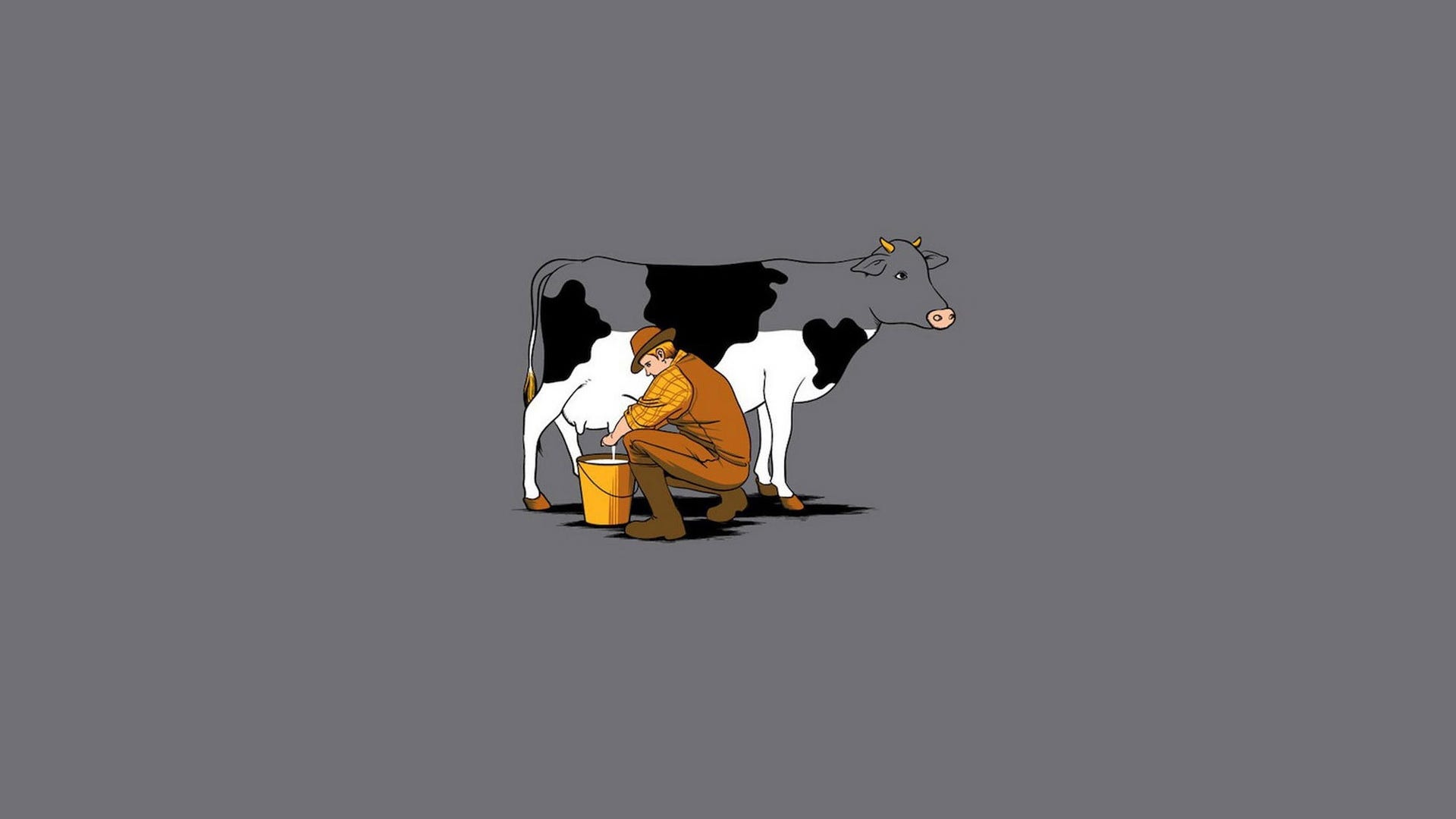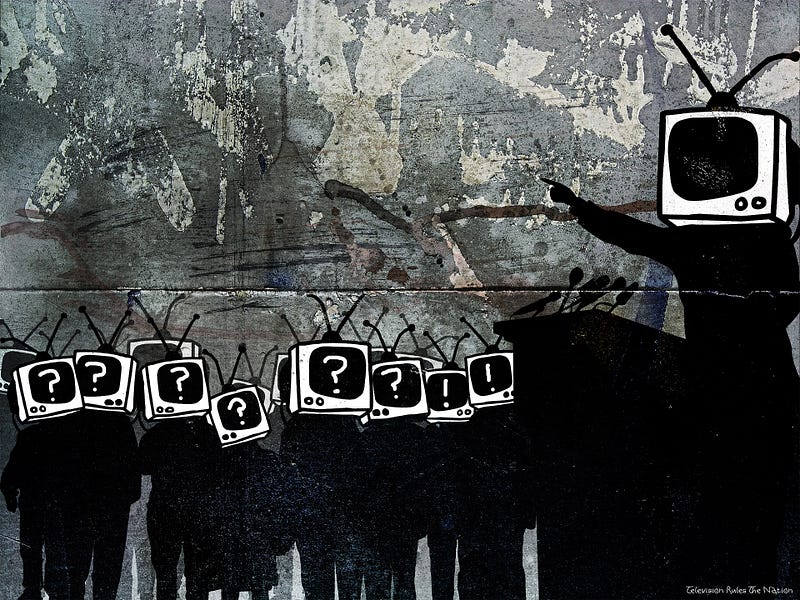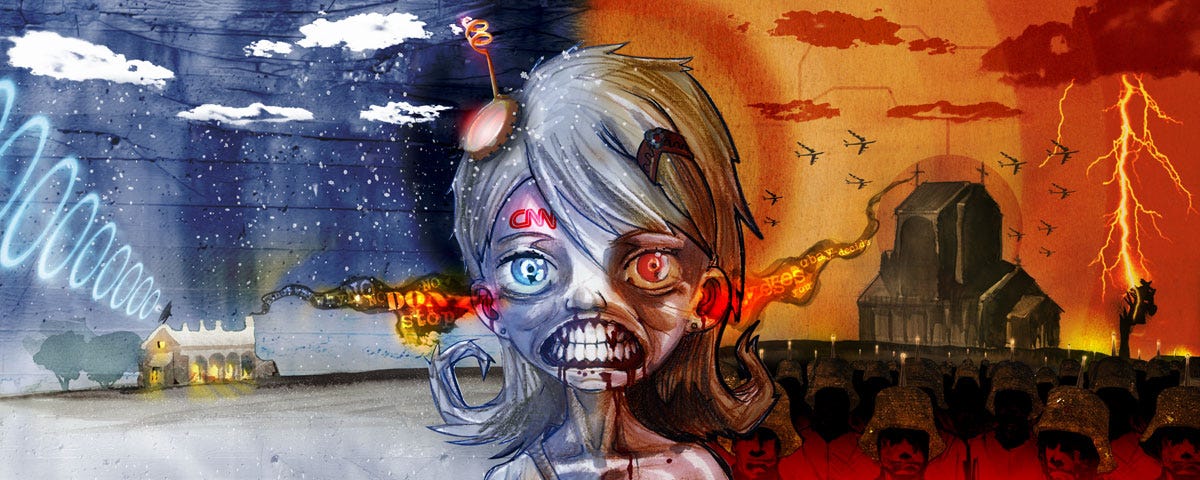“[Research] suggests that what we think of as free will is largely an illusion: much of the time, we are simply operating on automatic pilot, and the way we think and act — and how well we think and act on the spur of the moment — are a lot more susceptible to outside influences than we realise.” ― Malcolm Gladwell, Blink
Say “silk” five times.
Now spell “silk”.
What do cows drink?

Milk, right?
Are you sure?
Answer: Cows drink water.
If you thought the answer was “milk”, you are the victim of priming.
Priming is a technique whereby exposure to one stimulus in the past influences a response to a stimulus later on, without any conscious guidance or intention. Our previous guest on The Innovation Show, David McRaney told us, “Priming works best when we are on autopilot when we aren’t trying to consciously introspect before choosing how to behave.” This is one of the ways advertising, influencer marketing and cultural narratives form our opinions.
We all think we know when we are being influenced and how it is affecting our behaviour. However, we are unaware of the constant nudging we receive from existing ideas formed in our unconscious minds. These ideas are influenced by culture, advertising, society, family, friends and indeed the meaning of words. Because ideas steer our decisions, the words we expose ourselves to, words used in our society and even how we speak to ourselves are hugely influential. They influence our behaviour and our behaviours create our realities.
“It’s very important to teach people to be on their guard against the sort of verbal booby traps into which they are always being led, to analyze the kind of things that are said to them” — Aldous Huxley
The Linguistic Relativity hypothesis proposes the structure of our individual languages impacts our worldview. This hypothesis is known as the “Sapir–Whorf hypothesis”. Also known as Whorfianism, the principle includes two versions.
The strong version suggests that language determines thought and that linguistic categories limit and determine cognitive categories.
The weak version says that linguistic categories and usage only influence thought and decisions.
Whichever the case, it is clear that the words we employ greatly influence how we think about innovation, change and transformation.
This week’s Thursday Thought is inspired by the guests from the innovation show. Many of our guests have suggested that language greatly influence the success of our ideas. Employing the right language can breathe life into a new idea; while employing the wrong language can kill an idea before it even takes flight.

“Language shapes our behaviour, and each word we use is imbued with multitudes of personal meaning. The right words spoken in the right way can bring us love, money, and respect, while the wrong words — or even the right words spoken in the wrong way — can lead to a country of war. We must carefully orchestrate our speech if we want to achieve our goals and bring our dreams to fruition.” — Dr Andrew Newberg (Words Can Change Your Brain)
Much of what we think, feel, do, and believe is, and will continue to be, nudged one way or the other by unconscious primes from words, colours, objects, personalities, and other things infused with meaning either from your personal life or the culture you identify with. Sometimes these “primes” are unintended; sometimes there is an agent (an advertiser for example) on the other end who plotted against your judgment.
We prime other people when we wear our best suit to a job interview or put the coffee pot on when selling a house. The smell of freshly brewed coffee primes people to see this house as their home. You may notice hotels do this with, specially prepared luxurious scents to match their brand.
The reason I share the concept of priming is that we are all victims of priming on a mass scale. This is one of the dangers of mass media, where a nation can be primed (less possible now with the fragmentation of traditional media, but still feasible with the growth of social media).

An example where nations have been primed was discussed on a previous innovation show with Sebastian Morrincolo when we discussed the expression “War on Drugs”, which was introduced by the Nixon administration in the 1970s. This expression implies that there is something intrinsically wrong with all drugs and drug use in general. When you think about the word drugs itself, it can easily evoke negative thoughts and emotions.
We discuss psychoactive substances and their role in society on this week’s innovation show with psychoactive substance pioneer and changemaker Dr Rick Strassman. From 1990 to 1995 Dr Strassman conducted DEA-approved clinical research at the University of New Mexico in which he injected sixty volunteers with DMT, one of the most powerful psychedelics known. His detailed account of those sessions is a riveting inquiry into the nature of the human mind and the therapeutic potential of psychedelics. However, pioneers like Rick are always fighting the significance of societal attitudes towards psychedelics. Even if psychedelics could be the key to unlocking human potential and help people with mental anomalies and debilitating disorders they remain tainted by years of social priming and cultural prejudice.
Priming Change

I have mentioned how we have been primed to think negatively about psychedelics. Rick Strassman shares an example of how the language used by researchers can prime research subjects towards a certain mode of thinking. In 1962 Schachter and Singer released a paper entitled “Cognitive, Social, and Physiological Determinants of Emotional State”. What scientists call a drug heavily influences the expectations of subjects receiving drugs. Even what researchers tell subjects they will experience influences their experience. In Singer and Schachter’s study, researchers injected volunteers with the fight or flight hormone adrenaline under the set of expectations that they were receiving a sedative. The volunteers who were told they were receiving a sedative reported that they felt calm and relaxed, while those who were told they received adrenaline reported an energetic, anxious state. The term psychedelic has a similar impact on individuals.
The words and terminology we use unconsciously primes our personal narratives all the time.
I feel the debate on psychedelics must be revisited, researchers should not be ostracized for their desire to push the boundaries of human ability and that is a major reason I wrote this piece and published the innovation show with Rick.
There is a second reason I share this Thursday Thought and that is to highlight the importance of our language choice in business, in transformation and in every aspect of our lives.
To finish this Thursday Thought, I gathered some thoughts on the words we use from past innovation show guests:
Chief Reinvention Officer and author of Titanic Syndrome Dr Nadya Zhexembayeva recommends on episode 162 we use the word Reinvention rather than Innovation. Innovation may suggest that the business as it is today and yesterday is some way defected and thus many people reject the term. Reinvention, in contrast, suggests rebuilding the old business, This word choice elicits a more favourable response and more people will embrace this.
Joe Pine is the father of the Experience Economy. As far back as 1998, Joe introduced a new language to encapsulate new business models and experiences. The world is witnessing a shift from commodities, products and services towards both experiences and transformational experiences. In this world, the language must change because words create worlds. In one of many examples in episode 82, Joe suggests marketing be relabelled as “customering” because this puts the customer at the centre of everything.
Andre Wiringa on episode 96 suggests we relabel customers as guests. Andre tells us this changes how we think of customers, it changes how we think.
On episode 94, Larry Osborne emphasises how we need to employ a language of experimentation and flexibility, not a language of certainty. Why? The status quo will tolerate an experiment, especially because they expect it to fail. Experimentation language gives you a runway to get a lot done, all in the name of said experimentation. An added benefit is experimentation language permits us a license for mid-course corrections, in fact, these will be encouraged not just allowed and mid-course corrections will be vital.
On episode 65: “Selling Ideas to Your Boss and Getting Buy-In” Jim Detert explores a framework for the idea or “issue selling”. He says we should frame an issue as a loss because humans tend to value loss avoidance more than gain of a new thing. In essence, we run from loss, but we walk towards gain.
My own contribution is to avoid the word cannibalisation when referring to transformation. Cannibalisation evokes thoughts of cannibals devouring the flesh of their fellow man. Despite the use of the word to suggest the creative destruction of business for positive gain, the term still carries many negative undertones.
I leave you this week with the wise words of Buddha:
“Whatever words we utter should be chosen with care for people will hear them and be influenced by them for good or ill.” — Buddha
This week’s innovation show is episode 167 DMT: The Spirit Molecule with Dr Rick Strassman.
From 1990 to 1995 our guest conducted DEA-approved clinical research at the University of New Mexico in which he injected sixty volunteers with DMT, one of the most powerful psychedelics known. His detailed account of those sessions is an extraordinarily riveting inquiry into the nature of the human mind and the therapeutic potential of psychedelics. DMT, a plant-derived chemical that is also manufactured by the human brain, consistently produced near-death and mystical experiences. Many volunteers reported convincing encounters with intelligent nonhuman presences. Nearly all felt that the sessions were among the most profound experiences of their lives.
Our guests’ research connects DMT with the pineal gland, considered by Hindus to be the site of the seventh chakra and by René Descartes to be the seat of the soul.
His book “DMT: The Spirit Molecule” makes the bold case that DMT, naturally released by the pineal gland, facilitates the soul’s movement in and out of the body and is an integral part of the birth and death experiences, as well as the highest states of meditation and even sexual transcendence. Our guest also believes that alien abduction experiences are brought on by accidental releases of DMT. If used wisely, DMT could trigger a period of remarkable progress in the scientific exploration of the most mystical regions of the human mind and soul.
Have a listen:
Soundcloud https://lnkd.in/gBbTTuF
Spotify http://spoti.fi/2rXnAF4
iTunes https://apple.co/2gFvFbO
Tunein http://bit.ly/2rRwDad
iHeart http://bit.ly/2E4fhfl
More about Rick: https://www.rickstrassman.com/
